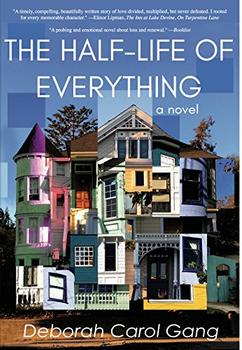Summary | Excerpt | Reading Guide | Reviews | Beyond the book | Read-Alikes | Genres & Themes | Author Bio

An ordinary life - its sharp pains and unexpected joys, its bursts of clarity and moments of confusion - lived by an ordinary woman: This is a novel that speaks of life as it is daily lived, a crowning achievement by one of the finest American writers at work today.
An ordinary life - its sharp pains and unexpected joys, its bursts of clarity and moments of confusion - lived by an ordinary woman: this is the subject of Someone, Alice McDermott's extraordinary return, seven years after the publication of After This. Scattered recollections - of childhood, adolescence, motherhood, old age - come together in this transformative narrative, stitched into a vibrant whole by McDermott's deft, lyrical voice.
Our first glimpse of Marie is as a child: a girl in glasses waiting on a Brooklyn stoop for her beloved father to come home from work. A seemingly innocuous encounter with a young woman named Pegeen sets the bittersweet tone of this remarkable novel. Pegeen describes herself as an "amadan," a fool; indeed, soon after her chat with Marie, Pegeen tumbles down her own basement stairs. The magic of McDermott's novel lies in how it reveals us all as fools for this or that, in one way or another.
Marie's first heartbreak and her eventual marriage; her brother's brief stint as a Catholic priest, subsequent loss of faith, and eventual breakdown; the Second World War; her parents' deaths; the births and lives of Marie's children; the changing world of her Irish-American enclave in Brooklyn - McDermott sketches all of it with sympathy and insight. This is a novel that speaks of life as it is daily lived; a crowning achievement by one of the finest American writers at work today.
I have to admit that there were times when Someone read as a bit of a cautionary tale—"do not live your life in such a passive, apathetic way." At the same time, it is thoroughly validating and lovely to know that upon examination, even an unexceptional life, no matter how ordinary, is of value...continued
Full Review
(747 words)
This review is available to non-members for a limited time. For full access,
become a member today.
(Reviewed by Sharry Wright).
Reading quiet, literary fiction, like Someone, nudges us towards contemplation and self-examination. But according to a recent study conducted at the New School for Social Research in New York, it may do even more. This much-publicized study, "Reading Literary Fiction Improves Theory of Mind," concludes that reading literary fiction can better the ability to "read" the thoughts and feelings of others. The researchers, Ph.D candidate David Comer Kidd; and professor of psychology, Emanuele Castano; suggest that this is achieved by an increase in empathy and the ability to recognize and share the feelings of others.
But first, perhaps, we should try to define the somewhat ambiguous line between literary and popular fiction. Castano ...
This "beyond the book" feature is available to non-members for a limited time. Join today for full access.

If you liked Someone, try these:

by Deborah Carol Gang
Published 2018
David and Kate are happily married fifty-somethings when she's diagnosed with early Alzheimer's. He has never been unfaithful, but after several years of losing Kate more each day, he wonders: What is a married widower supposed to do? Two strong-willed women intervene and everyone finds themselves making unexpected choices.

by Marilynne Robinson
Published 2015
Marilynne Robinson, one of the greatest novelists of our time, returns to the town of Gilead in an unforgettable story of a girlhood lived on the fringes of society in fear, awe, and wonder.
Common sense is genius dressed in its working clothes.
Click Here to find out who said this, as well as discovering other famous literary quotes!